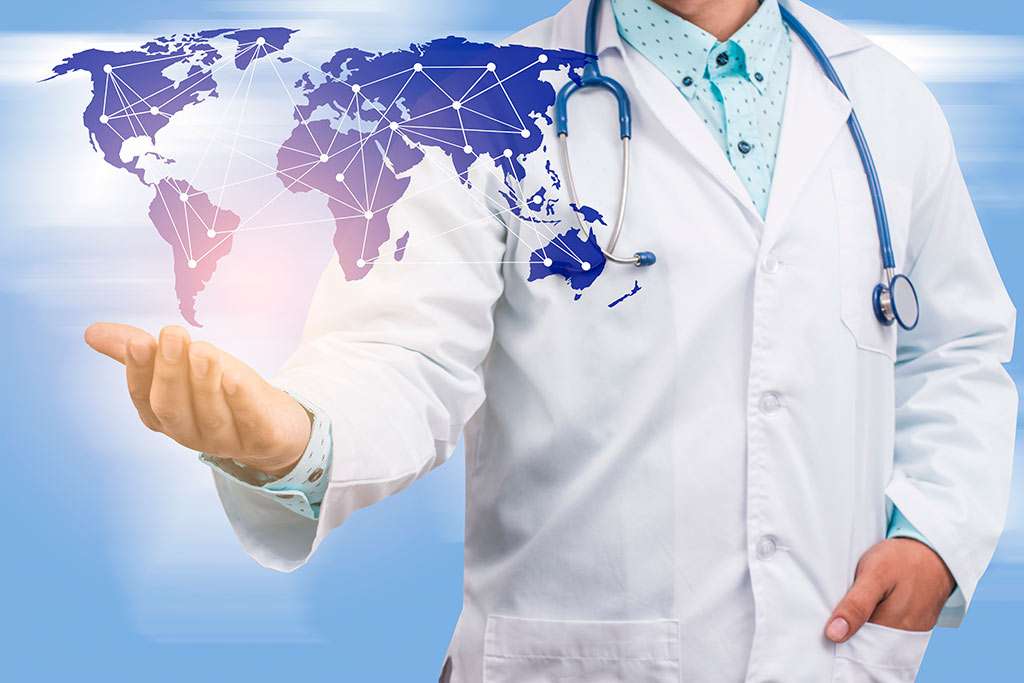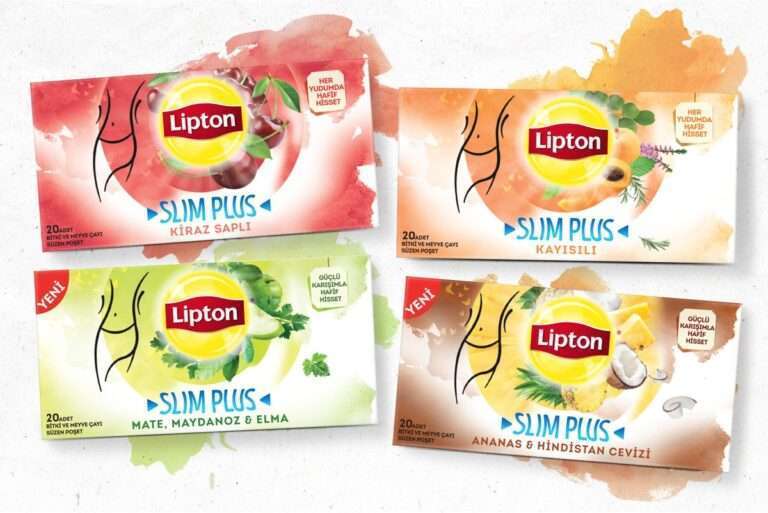Combining a vacation with medical treatment might sound like a luxury, but it’s an increasingly popular and cost-effective way to receive top-notch healthcare. Medical tourism allows you to access high-quality medical services, often at a fraction of the cost in your home country, while also enjoying the benefits of travel. If you’re considering medical tourism, understanding the best countries for specific treatments, how much you can save, and what the process entails is crucial. Let’s explore some of the top destinations, the procedures they specialize in, and everything you need to know to plan your medical journey.
Thailand: The Land of Smiles and World-Class Healthcare
Thailand has become a premier destination for medical tourism, thanks to its combination of world-class healthcare facilities, highly trained doctors, and affordable costs. The country is particularly famous for cosmetic surgery, but its medical expertise spans various specialties. Bangkok, the capital, is the epicenter of medical tourism, home to some of the best hospitals in the world.
Specializations
- Cosmetic Surgery: Thailand is globally renowned for cosmetic procedures such as breast augmentation, liposuction, facelifts, and rhinoplasty. The surgeons here are among the best, with many trained in the US or Europe, offering procedures that are safe, reliable, and significantly cheaper than in Western countries.
- Gender Reassignment Surgery: Thailand is a leading destination for gender reassignment surgery, known for its pioneering techniques and experienced surgeons. Hospitals like Bumrungrad International Hospital and Yanhee Hospital are top choices for these procedures.
- Dental Work: From routine check-ups to complex dental surgeries, Thailand offers exceptional dental care. Many dental clinics in Bangkok and Phuket cater specifically to international patients.
Cost Comparison
- Breast Augmentation: In the US, this procedure can cost upwards of $10,000. In Thailand, the cost is typically between $3,000 and $5,000, including surgeon fees, anesthesia, and hospital stay.
- Facelift: A facelift in the US ranges from $8,000 to $15,000. In Thailand, you can expect to pay between $3,500 and $6,000.
Process and Duration
Patients usually contact hospitals directly or through medical tourism agencies to arrange consultations, which can often be done via video call before travel. Once in Thailand, the process typically involves a pre-operative consultation, the surgery itself, and a recovery period. For cosmetic surgeries, you might need to stay in Thailand for 7 to 14 days post-operation to ensure proper recovery and follow-up care.
Accommodation and Aftercare
Many hospitals offer packages that include transportation, accommodation, and even spa services. Post-surgery recovery is often enhanced by staying in resort-like environments, with some hospitals providing luxury recovery suites.
India: Cutting-Edge Medical Care at Unbeatable Prices
India is a top destination for medical tourists seeking advanced medical treatments at incredibly low prices. The country’s healthcare system combines modern technology with skilled professionals, making it a leader in specialized surgeries like cardiac care and orthopedics. Major cities like Delhi, Mumbai, Chennai, and Bangalore boast internationally accredited hospitals with English-speaking staff.
Specializations
- Cardiac Surgery: India is globally recognized for its expertise in cardiac surgeries, including bypass surgery, valve replacements, and angioplasty. Hospitals like Apollo Hospitals and Fortis Healthcare are equipped with the latest technology and highly experienced cardiologists.
- Orthopedic Surgery: India is a leading destination for joint replacements, such as hip and knee surgeries, with procedures performed at a fraction of the cost in Western countries.
- Oncology (Cancer Treatment): Advanced cancer treatments, including chemotherapy, radiation therapy, and bone marrow transplants, are available at world-class facilities like Tata Memorial Hospital and Max Healthcare.
Cost Comparison
- Heart Bypass Surgery: In the US, this surgery can cost between $70,000 and $200,000. In India, it typically costs between $7,000 and $10,000.
- Hip Replacement: A hip replacement surgery in the US can cost $30,000 to $50,000, while in India, it’s around $7,000 to $12,000.
Process and Duration
The process usually starts with an online consultation, followed by detailed discussions with the chosen hospital. Once in India, patients undergo pre-operative tests, followed by surgery. Post-surgery, a stay of 2 to 4 weeks is recommended, depending on the complexity of the procedure, to ensure proper recovery and follow-up care.
Accommodation and Aftercare
Many hospitals in India offer comprehensive packages that include the cost of surgery, accommodation, airport transfers, and even local tours for accompanying family members. Some hospitals have dedicated international patient departments to help with visa arrangements and provide language support.
Mexico: Quality Healthcare Just Across the Border
For patients in the United States and Canada, Mexico offers the convenience of high-quality healthcare close to home. Mexican hospitals and clinics, particularly in border cities like Tijuana and Cancun, are known for their excellent standards, experienced doctors, and affordability.
Specializations
- Bariatric Surgery: Mexico is a popular destination for weight loss surgeries like gastric bypass and sleeve gastrectomy. These procedures are performed by skilled surgeons at a fraction of the US cost.
- Dental Work: Dental tourism is thriving in Mexico, with procedures like dental implants, crowns, and veneers available at significantly lower prices.
- Cosmetic Surgery: Mexico is also known for high-quality cosmetic surgeries, including rhinoplasty, tummy tucks, and breast augmentations.
Cost Comparison
- Gastric Bypass: In the US, this surgery can cost $20,000 to $25,000, while in Mexico, it ranges from $5,000 to $8,000.
- Dental Implants: A single dental implant in the US can cost $3,000 to $5,000. In Mexico, it’s about $1,000 to $1,500.
Process and Duration
Traveling to Mexico for medical treatment is straightforward, especially for those close to the border. Patients often arrange consultations online or over the phone. Many clinics offer package deals that include transportation from the airport, hotel accommodations, and post-operative care. Depending on the procedure, the stay can range from a few days to a week or more for recovery and follow-up appointments.
Accommodation and Aftercare:
Many clinics have partnerships with nearby hotels, offering discounted rates for patients and their families. The close proximity to the US makes it easier for patients to return for any necessary follow-up visits.
Turkey: A Bridge Between Continents and Medical Excellence
Turkey has rapidly emerged as a major hub for medical tourism, attracting patients from Europe, the United States, and beyond. The country offers a combination of advanced medical facilities, experienced healthcare professionals, and competitive prices. Istanbul, with its blend of historic charm and modern infrastructure, is the focal point for medical tourists.
Specializations
- Hair Transplants: Turkey is the global leader in hair transplant procedures, with thousands of successful operations performed each year. Clinics in Istanbul are particularly famous for their expertise and affordability.
- Eye Surgery: Turkey is known for its top-notch ophthalmology services, offering treatments like LASIK, cataract surgery, and other corrective eye surgeries.
- Cosmetic Surgery: Turkey is also a popular destination for cosmetic surgeries such as rhinoplasty, liposuction, and facelifts, with many clinics offering high-quality procedures at competitive prices.
- Dental Work: Dental tourism is on the rise in Turkey, with cities like Istanbul and Antalya offering a wide range of dental services. From implants and crowns to veneers and full-mouth restorations, Turkish dentists provide high-quality care at a fraction of the cost in Western countries.
Cost Comparison
- Hair Transplant: In the US, a hair transplant can cost between $8,000 and $15,000. In Turkey, the cost is typically between $1,500 and $3,000, depending on the method and the number of grafts.
- Rhinoplasty: Rhinoplasty in the US ranges from $7,000 to $12,000, while in Turkey, it can be done for $2,000 to $4,000.
- Dental Implants: A single dental implant in the US can cost $3,000 to $5,000. In Turkey, the cost is usually between $800 and $1,500.
Process and Duration
The process begins with a consultation, usually done online, where the patient discusses their needs with the surgeon or dentist. Upon arrival in Turkey, patients typically undergo pre-surgery evaluations or dental assessments, followed by the procedure and a recovery period. For dental work, the stay can vary from a few days for simpler procedures like crowns to a couple of weeks for more complex treatments like full-mouth restorations. For other surgeries, recovery times vary; for example, hair transplants might only require a few days, while rhinoplasty may require up to two weeks.
Accommodation and Aftercare:
Many Turkish clinics offer all-inclusive packages that cover airport transfers, hotel stays, and even guided tours of Istanbul. The packages often include follow-up consultations and care instructions, ensuring a smooth recovery process. Turkey’s vibrant culture and scenic beauty provide an enriching environment for recovery, making the experience both medically beneficial and personally rewarding.
South Korea: The Pinnacle of Cosmetic Surgery
South Korea is the world’s leading destination for cosmetic surgery, renowned for its advanced techniques and meticulous attention to detail. Seoul, in particular, is a global hub for beauty and cosmetic procedures, attracting patients from all over the world seeking the latest in aesthetic enhancements.
Specializations
- Cosmetic Surgery: South Korea is famous for procedures like double eyelid surgery, jaw reduction, rhinoplasty, and anti-aging treatments. Korean surgeons are known for their precision and ability to achieve natural-looking results.
- Skin Treatments: South Korea is also at the forefront of dermatological care, offering advanced laser treatments, skin rejuvenation procedures, and anti-aging solutions.
- Orthopedic Surgery: Beyond cosmetic procedures, South Korea excels in orthopedic surgeries, including joint replacements and treatment for sports injuries.
Cost Comparison
- Double Eyelid Surgery: In the US, this procedure can cost between $3,000 and $6,000. In South Korea, it typically costs $1,500 to $3,000.
- Jaw reduction surgery: Jaw reduction surgery in the US can cost anywhere from $20,000 to $40,000, while in South Korea, the procedure generally costs between $7,000 and $15,000.
Process and Duration
The process typically starts with an online consultation where the surgeon assesses your needs and provides recommendations. Upon arrival in South Korea, you’ll undergo a detailed consultation and pre-surgery evaluations. Depending on the procedure, the recovery time can vary. For instance, non-invasive procedures like double eyelid surgery might require a stay of 5 to 7 days, while more complex surgeries like jaw reduction may require a stay of 2 to 3 weeks to allow for proper recovery and follow-up care.
Accommodation and Aftercare
South Korea’s medical tourism infrastructure is well-developed, with many clinics offering package deals that include airport transfers, hotel accommodation, and post-operative care. Seoul’s vibrant city life also provides an enjoyable environment for recovery, with plenty of shopping and cultural experiences to explore.
Costa Rica: Nature’s Beauty Meets Medical Excellence
Costa Rica is a top choice for those seeking quality medical care in a serene and natural setting. The country has developed a reputation for excellent healthcare, particularly in dental and cosmetic surgery, with many facilities catering to international patients. Its proximity to the United States, combined with its natural beauty, makes it a popular destination for medical tourists.
Specializations
- Dental Work: Costa Rica is particularly well-known for dental tourism, offering procedures like dental implants, crowns, and full-mouth restorations at significantly reduced costs compared to the US.
- Cosmetic Surgery: Costa Rica is also a leading destination for cosmetic procedures such as facelifts, tummy tucks, and breast augmentations, performed by highly skilled surgeons.
- Orthopedic Surgery: For joint replacements and other orthopedic procedures, Costa Rica offers modern facilities and experienced doctors at competitive prices.
Cost Comparison
- Dental Implants: In the US, a single dental implant can cost $3,000 to $5,000. In Costa Rica, the cost is typically between $1,000 and $1,500.
- Facelift: A facelift in the US can cost $8,000 to $15,000, while in Costa Rica, it typically costs between $4,000 and $7,000.
Process and Duration
The process begins with online consultations and coordination with the chosen medical facility. Upon arrival, pre-operative consultations and evaluations are conducted. The recovery time varies depending on the procedure; dental treatments might require a stay of a few days, while more extensive cosmetic surgeries may require a stay of 1 to 2 weeks.
Accommodation and Aftercare
Costa Rica offers a range of accommodation options, from luxury resorts to budget-friendly hotels. Many hospitals and clinics offer package deals that include accommodation and transportation, making it easy for patients to focus on recovery. The country’s natural beauty provides a peaceful environment for healing, with many patients choosing to extend their stay to enjoy the beaches, rainforests, and other attractions.
Essential Tips for a Successful Medical Tourism Experience
The idea of traveling abroad for medical care comes with its own set of challenges and rewards. To help you navigate this unique experience, here are some tips to ensure your medical tourism trip is smooth, safe, and successful.
Research, Research, Research
Before you even think about booking your flight, take the time to thoroughly research your destination, the medical facility, and the procedure you’re considering. Look for hospitals or clinics with international accreditations like JCI (Joint Commission International) and check reviews from other medical tourists. Online forums and medical tourism agencies can also provide valuable insights.
Pro Tip: Don’t just rely on what’s on the clinic’s website. Seek out third-party reviews and testimonials from other patients who’ve had similar procedures at the facility you’re considering.
Understand the Costs and Savings
One of the main reasons people choose medical tourism is the cost savings, but it’s important to understand exactly what you’re getting for your money. While the procedure itself may be cheaper abroad, don’t forget to factor in additional costs like travel, accommodation, post-op care, and any potential follow-up visits.
Pro Tip: Ask for a detailed breakdown of costs from the clinic upfront, and always budget for contingencies. It’s also wise to compare prices in several countries before making a decision.
Choose the Right Time for Your Procedure
Timing is crucial when planning medical travel. Consider the season in your destination country—some procedures may require you to avoid extreme weather conditions during recovery. Additionally, some countries may have peak tourist seasons that can drive up the cost of flights and accommodation.
Pro Tip: Schedule your procedure during off-peak seasons for better deals on travel and accommodations, and make sure the timing aligns with when you can take time off from work or other responsibilities.
Verify Credentials and Certifications
Make sure that the doctors, surgeons, and dentists at the facility you choose are properly certified and have the necessary qualifications. Many top surgeons in medical tourism hotspots are trained in Western countries, but it’s crucial to verify this information independently.
Pro Tip: Don’t be afraid to ask for your doctor’s credentials, training background, and experience with the specific procedure you’re considering. A reputable clinic will have no problem providing this information.
Plan for Recovery Time
Recovery time is a crucial aspect of medical tourism that is often overlooked. Depending on the procedure, you may need to stay in the country for several days or even weeks after your treatment to ensure you heal properly and can attend follow-up appointments.
Pro Tip: Plan your recovery period carefully. Consider staying in a comfortable hotel or resort where you can rest and recover in peace. Make sure the location is close to your clinic for easy access to follow-up care.
Arrange Travel and Accommodation Carefully
When booking your travel, ensure your itinerary is flexible. Flights may need to be rescheduled if your recovery takes longer than expected. As for accommodation, choose a place close to the hospital or clinic, and check if they have partnerships with local hotels for medical tourists.
Pro Tip: Some clinics offer packages that include accommodation, airport transfers, and even meals. These can be more convenient and cost-effective than booking everything separately.
Communicate Clearly and Openly
Language barriers can be a significant challenge in medical tourism. Make sure there’s clear communication between you and your medical team. Many international hospitals have multilingual staff, but if you’re unsure, consider hiring a translator or choosing a facility with a dedicated international patient coordinator.
Pro Tip: Prepare a list of questions and concerns ahead of your consultation. Don’t hesitate to ask for clarification on any medical terms or instructions you don’t understand.
Prepare for the Unexpected
Even with the best planning, things can go wrong. Complications can arise, or recovery might take longer than anticipated. It’s crucial to have a contingency plan in place, including extra funds and flexible travel arrangements.
Pro Tip: Consider purchasing medical travel insurance that covers complications, additional treatments, or extended stays due to unforeseen issues.
Take Care of Legalities
Before you go, make sure you understand the legal implications of having surgery abroad. This includes knowing your rights as a patient in the destination country and understanding what recourse you have if something goes wrong. Check if the procedure is legal and regulated in the country you’re visiting.
Pro Tip: Keep copies of all your medical records, prescriptions, and any signed agreements. This documentation can be crucial if you need to seek further treatment once you return home.
Don’t Forget About Aftercare
Your medical journey doesn’t end when you leave the operating room. Aftercare is a critical part of your recovery process. Make sure you understand the aftercare plan, including any medications, physical therapy, or follow-up appointments required.
Pro Tip: Arrange for follow-up care either in the destination country or with a local physician back home before you travel. Ensure that your doctor back home is aware of the procedure you’re having and is prepared to assist with your recovery if needed.
Involve a Travel Companion
It’s a good idea to bring someone with you when traveling for medical care. A travel companion can offer support, help with logistics, and assist in communication with medical staff. They can also be there to help with your recovery, especially in the first few days post-surgery when you may need extra help.
Pro Tip: Choose a travel companion who can stay with you for the entire duration of your trip, including any potential extensions due to recovery issues.
Embrace the Experience
While the primary goal of your trip is medical, don’t forget to enjoy the travel aspect as well. Depending on your health and recovery, take some time to explore your destination, enjoy local cuisine, and experience the culture. Just be sure to follow your doctor’s advice on what activities are safe during your recovery.
Pro Tip: Plan some light, relaxing activities that don’t interfere with your recovery. Many destinations offer spa treatments, gentle sightseeing tours, or cultural experiences that can be both enjoyable and beneficial to your healing process.
By following these tips, you can ensure that your medical tourism journey is as safe, cost-effective, and stress-free as possible. Proper planning and preparation will allow you to focus on what’s most important—your health and recovery—while also enjoying the unique experience of receiving medical care in a new and exciting destination.
Medical Tourism Frequently Asked Questions
What is medical tourism?
Medical tourism refers to the practice of traveling to another country to receive medical treatment. This can include a wide range of procedures, from elective surgeries and cosmetic enhancements to dental care and fertility treatments. Patients often choose medical tourism to access high-quality care at lower costs, to shorten wait times, or to combine medical treatment with a vacation.
Why do people choose medical tourism?
People opt for medical tourism primarily for cost savings, as medical procedures can be significantly cheaper abroad. Other reasons include access to treatments that may not be available in their home country, shorter wait times, the ability to combine medical treatment with travel, and in some cases, privacy concerns.
How much can I save by opting for medical tourism?
Savings can be substantial, often ranging from 30% to 80% compared to the cost of similar procedures in countries like the US, Canada, or the UK. The exact savings depend on the destination, the type of procedure, and the medical facility chosen. For instance, a hip replacement that might cost $40,000 in the US could be available for $10,000 or less in countries like India or Thailand.
Is the quality of care comparable to my home country?
Many medical tourism destinations offer care that is on par with, or even exceeds, the quality found in Western countries. Top hospitals in popular destinations like Thailand, India, Mexico, and Turkey are often accredited by international organizations such as the Joint Commission International (JCI), ensuring they meet rigorous standards. However, it’s crucial to thoroughly research the facility and medical professionals before making a decision.
How do I choose the right country and facility for my medical treatment?
Choosing the right country and facility involves researching the destination’s healthcare system, the reputation of specific hospitals or clinics, and the qualifications of the medical professionals. Look for facilities with international accreditation, read reviews from previous patients, and consider consulting with a medical tourism agency that can provide guidance based on your specific needs.
What are the most popular medical tourism destinations?
Some of the most popular medical tourism destinations include Thailand, India, Mexico, Turkey, South Korea, Costa Rica, and Malaysia. Each of these countries is known for specific types of medical treatments, such as cosmetic surgery in Thailand, dental work in Mexico, and orthopedic surgery in India.
What types of procedures are commonly sought through medical tourism?
Common procedures include cosmetic surgeries (such as facelifts, rhinoplasty, and liposuction), dental treatments (like implants, crowns, and veneers), orthopedic surgeries (including knee and hip replacements), fertility treatments, eye surgeries (like LASIK), and even life-saving procedures such as heart surgery or cancer treatments.
How do I verify the credentials of a doctor or surgeon abroad?
To verify the credentials of a doctor or surgeon abroad, start by checking their educational background, professional certifications, and memberships in international medical associations. Many reputable doctors have been trained in Western countries or have international experience. You can also check if the hospital or clinic where they work is accredited by international organizations like JCI.
Is it safe to undergo surgery abroad?
Undergoing surgery abroad can be safe if you choose a reputable facility with qualified medical professionals. It’s essential to do thorough research, verify credentials, and consult with previous patients if possible. Additionally, ensure that the facility adheres to international standards for hygiene, safety, and patient care.
What are the risks of medical tourism?
The risks of medical tourism include potential complications from surgery, differences in medical standards and practices, communication barriers, and issues related to follow-up care. There may also be legal challenges if something goes wrong, as pursuing legal action in a foreign country can be complicated. It’s important to weigh these risks and take steps to mitigate them by choosing accredited facilities and experienced doctors.
How do I plan for recovery after my procedure?
Planning for recovery involves ensuring you have adequate time to rest before traveling back home. Depending on the procedure, you may need to stay in the country for several days or weeks to ensure proper healing and attend follow-up appointments. Choose accommodation that is comfortable and close to the medical facility, and make sure you have a support system, such as a travel companion, to assist you during recovery.
Can I travel alone for medical treatment, or should I bring someone with me?
While it’s possible to travel alone for medical treatment, it’s generally recommended to bring a companion. A travel companion can provide emotional support, assist with communication, help with mobility after surgery, and handle logistics like transportation and meals. They can also be an advocate for you in case of any issues or emergencies.
What should I pack for my medical tourism trip?
Pack essentials like your passport, visa (if required), medical records, any medications you take regularly, comfortable clothing, and personal hygiene items. If you’re undergoing surgery, bring loose clothing that’s easy to put on and take off. You might also want to pack items that will help you stay entertained and relaxed during your recovery, such as books, a tablet, or soothing music.
How do I manage language barriers during my medical trip?
Language barriers can be managed by choosing a medical facility that offers services in your language or has multilingual staff. Many top medical tourism destinations have English-speaking doctors and coordinators. If language is still a concern, consider hiring a medical interpreter or using translation apps to facilitate communication.
What is the process for obtaining a medical visa?
The process for obtaining a medical visa varies by country. Some countries require a specific medical visa, while others allow you to enter on a standard tourist visa. Research the visa requirements for your destination and apply well in advance of your trip. You may need to provide documentation from your chosen medical facility confirming your treatment plans.
What should I do if something goes wrong during my medical treatment abroad?
If something goes wrong during your treatment, immediately communicate with your medical provider to address the issue. Most reputable clinics have protocols in place for handling complications. It’s also important to have medical travel insurance that covers complications, so you can receive the necessary care without financial strain. If the issue persists, consult with a local doctor once you return home.
Will my insurance cover medical treatments abroad?
Coverage for medical treatments abroad depends on your insurance policy. Some health insurance plans may cover procedures performed internationally, particularly if it’s an emergency or if your policy includes medical tourism benefits. However, many policies do not cover elective procedures abroad, so it’s crucial to review your coverage and consider purchasing additional medical travel insurance if needed.
How do I handle payment for medical services abroad?
Payment methods vary by facility, but many hospitals and clinics require upfront payment or a deposit before treatment. Payment is typically accepted via credit card, wire transfer, or in some cases, cash. Be sure to clarify payment terms and methods with the facility in advance, and consider using a credit card with no foreign transaction fees to save on additional costs.
What kind of aftercare is required after returning home?
After returning home, you may need follow-up appointments, physical therapy, or continued medication. Discuss your aftercare plan with your surgeon or doctor before leaving the destination country. Make sure your primary care physician or a specialist at home is informed about the treatment you received and is prepared to assist with any follow-up care.
Can I combine medical treatment with a vacation?
Yes, many people combine medical treatment with a vacation. This is often referred to as a “medical vacation.” However, it’s important to plan your itinerary carefully, ensuring that your recovery won’t be compromised by travel or sightseeing activities. Light activities like cultural tours or spa visits can be enjoyable and help with recovery, but strenuous activities should be avoided.
How do I prepare for my first consultation with a foreign doctor?
Prepare for your first consultation by gathering all relevant medical records, including previous diagnoses, test results, and treatment plans. Make a list of your symptoms, medical history, and any questions you have about the procedure. Be clear about your goals and expectations, and ensure that you fully understand the proposed treatment plan, including risks and benefits.
Do I need special vaccinations before traveling for medical treatment?
Depending on your destination, you may need vaccinations before traveling. Check with your healthcare provider or a travel medicine clinic about recommended or required vaccinations for the country you’re visiting. Common vaccinations include those for hepatitis, typhoid, yellow fever, and other region-specific diseases. It’s best to get vaccinated several weeks before your trip to allow time for immunity to develop.
How do I choose the right accommodation during my medical tourism trip?
When choosing accommodation, consider proximity to the medical facility, comfort, and amenities that support your recovery. Many hospitals have partnerships with nearby hotels that offer medical tourism packages, including shuttle services and special accommodations for patients. Ensure the accommodation is quiet, clean, and equipped to meet your post-surgery needs, such as providing extra pillows, room service, or wheelchair access.
What kind of support services are available for medical tourists?
Support services for medical tourists often include patient coordinators, translation services, transportation, and assistance with booking accommodation. Some facilities offer comprehensive packages that include everything from airport pickup to post-operative care. Medical tourism agencies can also help coordinate your trip, providing support before, during, and after your procedure.
Can I trust online reviews of medical tourism providers?
While online reviews can be helpful, they should be taken with caution. Look for reviews from verified patients and check multiple sources to get a balanced perspective. Be wary of reviews that seem overly positive or negative, and consider joining medical tourism forums or social media groups where you can ask questions and get feedback from people who’ve had similar experiences.
Final Thoughts
Medical tourism offers the opportunity to receive high-quality medical care while exploring a new country. By carefully researching your options, planning your journey, and understanding the entire process, you can ensure a successful and cost-effective medical experience. Whether you’re seeking cosmetic enhancement, life-saving surgery, or dental work, the world is full of destinations that offer top-notch medical care at prices that won’t break the bank. Take the time to explore your options, and you might just find that your next vacation could also be the key to better health and well-being.
Safe Travels!




